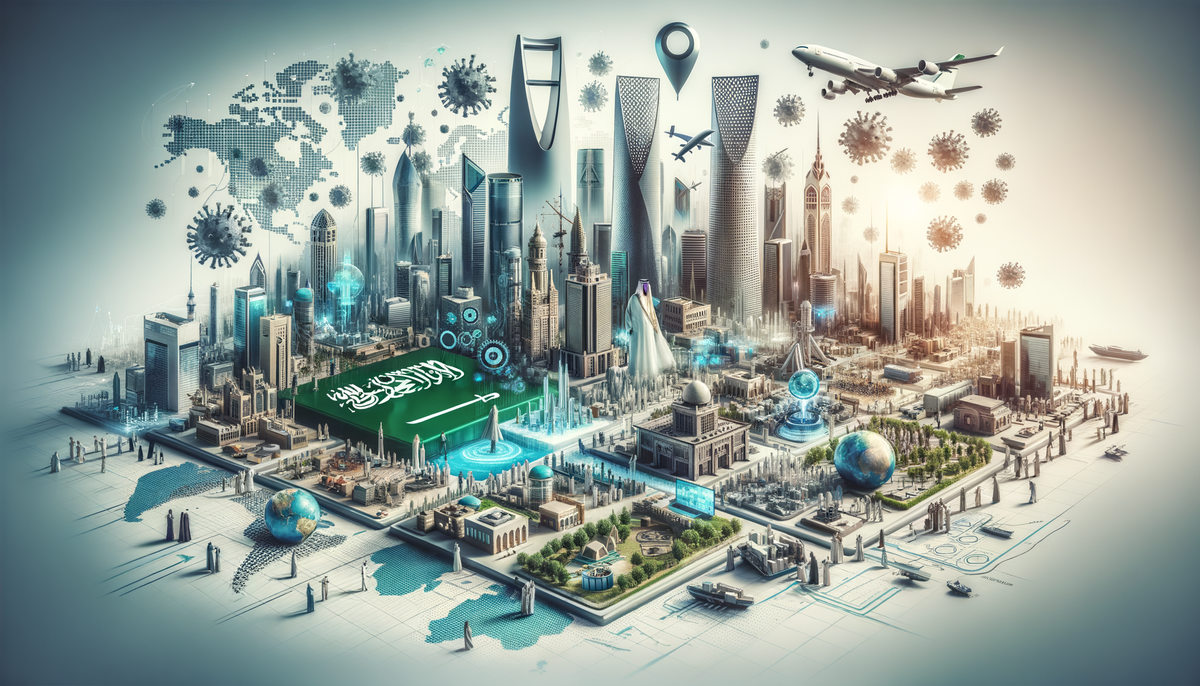Saudi Arabia: Navigating Ambitious Reforms Amidst Global Challenges
Explore Saudi Arabia's dynamic reforms and strategic global position in today's complex geopolitical climate.

Saudi Arabia: Navigating Ambitious Reforms Amidst Global Challenges

The Kingdom of Saudi Arabia has long been a pivotal force in the Middle East, known for its rich oil reserves, strategic location, and its role as the custodian of Islam’s holiest sites. The most trending news today in Saudi Arabia revolves around its ambitious economic and social reforms as the nation looks to navigate an increasingly complex global environment.
Overview of Saudi Arabia
Saudi Arabia, officially known as the Kingdom of Saudi Arabia, is the largest country in the Middle East, covering the majority of the Arabian Peninsula. The country, characterized by its predominantly arid desert climate, has a population estimated at over 33 million as of 2025. Its political system is an absolute monarchy, with King Salman bin Abdulaziz as the head of state and Crown Prince Mohammed bin Salman serving as the de facto ruler. The capital city is Riyadh, a vibrant metropolis that is a center for political, economic, and cultural activities.
Economic Landscape
The Saudi economy is the second-largest in the Middle East and the largest in the Arab world, with a GDP exceeding $1.1 trillion nominally. Despite its vast oil reserves, which make it one of the world’s leading oil producers and exporters, Saudi Arabia is actively working towards economic diversification. Over 63% of its budget revenue and 67% of its export earnings currently come from petroleum. Efforts under programs such as Vision 2030 aim to reduce this dependency by expanding private sector contributions and enhancing sectors such as tourism, entertainment, and technology.
Cultural and Religious Significance
Islam is the official religion, with Mecca and Medina revered as Islam's two holiest cities. Wahhabism, a swift form of Sunni Islam, forms a significant part of the country's conservative cultural identity. Arabic is the official language, and the population is largely Arab, though there is a significant presence of foreign workers in the private sector, reflecting the kingdom’s economic diversification efforts.
International Relations and Strategic Challenges
Saudi Arabia’s geopolitical influence is substantial, driven by its energy resources, religious significance, and strategic alliances. As detailed in a recent Axios report and al-Monitor article, the kingdom is navigating complex diplomatic landscapes, balancing relationships with western allies amidst internal reforms and maintaining stability in a region marked by rapid shifts.
Practical Takeaways for Saudi Professionals
Saudi Arabia’s ongoing reforms present both challenges and opportunities for professionals within the kingdom. Key areas of focus include:
- Economic Diversification: Professionals are encouraged to hone skills in emerging industries such as technology and entertainment.
- Education & Workforce Development: Increased focus on technical and higher education will ensure a competitive edge in new sectors.
- Entrepreneurship: Encouragement towards startups and innovation can drive economic growth and adaptability.
Call to Action
As Saudi Arabia steps into a new era of modernization and growth, it is crucial for professionals and businesses to adapt and evolve. Engage with leading experts at Newsomix.com to explore strategic insights and opportunities in the rapidly transforming landscape of Saudi Arabia. Stay informed, stay ahead.




